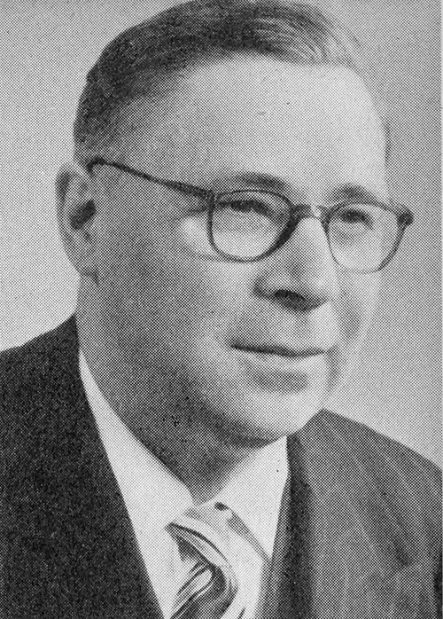
Jacques Rossel (1915–2008)
A missionary with an ecumenical life

“It is an inseparable part of mission to proclaim Christ and to share in living fellowship with him.”
Jacques Rossel was from Tramelan and was born in Courtelary in Switzerland’s Bernese Jura. He was the son of the judge Jean Rossel and Martha Tissot, and grandson of Virgile Rossel, President of the Swiss Federal Court. In 1942 he married Anne Marie Courvoisier.
Rossel completed his schooling up to his Matura in Bern and subsequently studied theology at the University of Lausanne. In 1938, he undertook a six-month study trip on the Christian missions of India and Indonesia, teaching theology there. After a traineeship at Lausanne Cathedral, he became a pastor of the Vaud Cantonal Church (ordination in 1939). He spent two years in the service of the Swiss Army before serving as pastor of the Reformed parish of Bulle-Romont (1941–1945). From July 1946 to February 1959 he was active at the Basel Mission in Mangalore, southern India. He was then elected President of the Board of Directors of the Basel Mission and lived in Basel until 1979. He was the first person from outside Basel to head the Basel Evangelical Missionary Society. During this time, he traveled to Ghana, Cameroon, Nigeria, and Uganda. He was a member of the Central Committee (representing the Federation of Swiss Protestant Churches) and later the Executive Committee of the World Council of Churches (WCC) (1968–1980). Rossel was strongly involved in the fight against apartheid and campaigned for the expansion of religious freedom in the Soviet Union. In 1964 he founded the Kooperation Evangelischer Missionen (“Cooperation of Protestant Missions”), which became the “Cooperation of Evangelical Missions and Churches” (KEM) in 1970. The organization included the Basel Mission until 2000. Lastly, he served as a pastor in Pully, Canton Vaud until his retirement in 1980. The Universities of Bern (1965) and Lausanne (1979) both awarded him honorary doctorates. A lightness of thinking, acting, creating, and praying characterized Rossel until his death. The ecumenist’s entire life was marked by his roots in the Gospel and his commitment to people wherever they may be.



